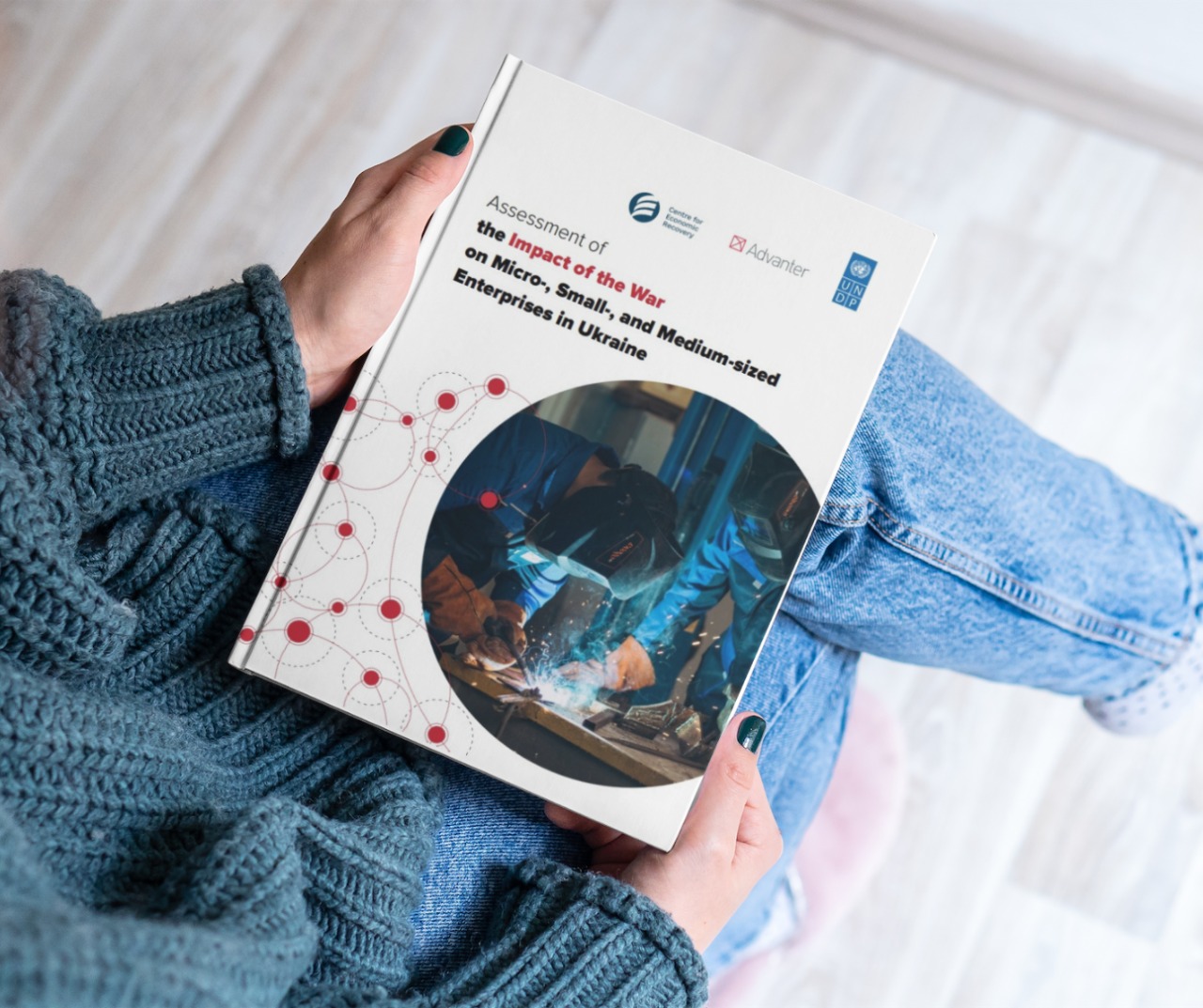Tenacious Ukrainian small, medium businesses optimistic about recovery, UNDP study finds

Recommendations coming from research include improving access to finance, introducing new financing instruments, and developing strategies for job creation and wage growth.
A comprehensive new United Nation Development Programme (UNDP) study conducted on the impact of the war on micro-, small, and medium-sized enterprises or MSMEs in Ukraine has been released, offering critical insights into the resilience, challenges, and recovery prospects of this vital sector.
The research, developed in partnership with the analytical platform the Centre for Economic Recovery and Ministry of Economy of Ukraine, underscores the significant role MSMEs play in the Ukrainian economy – they account for 99.98% of all business entities, and provide 74% of all jobs.
The key findings of the research were that MSMEs that had suspended operations at the beginning of 2022 had shown remarkable resilience, with 82% of them having partially resumed their activities by the end of 2023.
It was also found that businesses in Ukraine are cautiously optimistic about their prospects in 2024, although their main concerns continue to be the unpredictable situation, low demand, and labour shortages. Still, businesses are not planning further staff reductions, which indicates that there is the potential for further economic recovery.
Companies also said they plan to gradually put substantial unused capacity back into operation, and are ready to increase turnover by about 50% in 2024 if demand arises. In 2023, companies gradually restored their capacity utilization levels; with the weighted average rate of company capacity utilization being 53.4%. According to the forecast, this weighted average percentage should increase to 56% in 2024.

Despite the war, businesses adapted and maintained some financial capacity, but are hesitant to seek additional financing due to the unpredictable environment, the UNDP study found. Almost 80% of companies are not considering attracting foreign investment, but instead mostly relying on domestic loans. The average amount of additional financial resources required to implement these companies' business development strategies over three years is U.S. $950,000 per company, while almost half of the companies only need small investments at the level of $30,000 to $300,000.
Businesses in eastern and southern Ukraine faced 1.5 times higher losses than those in the west, but are maintaining a positive recovery outlook for 2024. Every second entrepreneur said that their businesses wouldn't survive without government assistance. They said credits, employment programmes, tax reductions, and grants have been crucial for survival, with a quarter of businesses benefiting from and showing interest in continued support.
UNDP Resident Representative in Ukraine Jaco Cilliers emphasized the importance of the study's findings for guiding future support and recovery efforts. "This research not only highlights the tenacity and adaptability of Ukrainian businesses in the face of unprecedented challenges, but also sheds light on the critical areas where support is needed," Cilliers said.
"It's imperative that we rally international and national support to bolster the resilience and growth of MSMEs, which are the backbone of Ukraine's economy."
The main recommendations of the study include improving access to finance, introducing new financing instruments, enhancing human capital and labour market flexibility, and developing strategies for job creation and wage growth. Additionally, the study calls for targeted initiatives to support war-affected populations and to enhance the competitiveness of MSMEs through investment in technology and the development of export opportunities.
The findings and recommendations of this research are expected to play a crucial role in shaping policies and support mechanisms for Ukrainian MSMEs, facilitating their recovery and growth in the post-conflict era.


















































